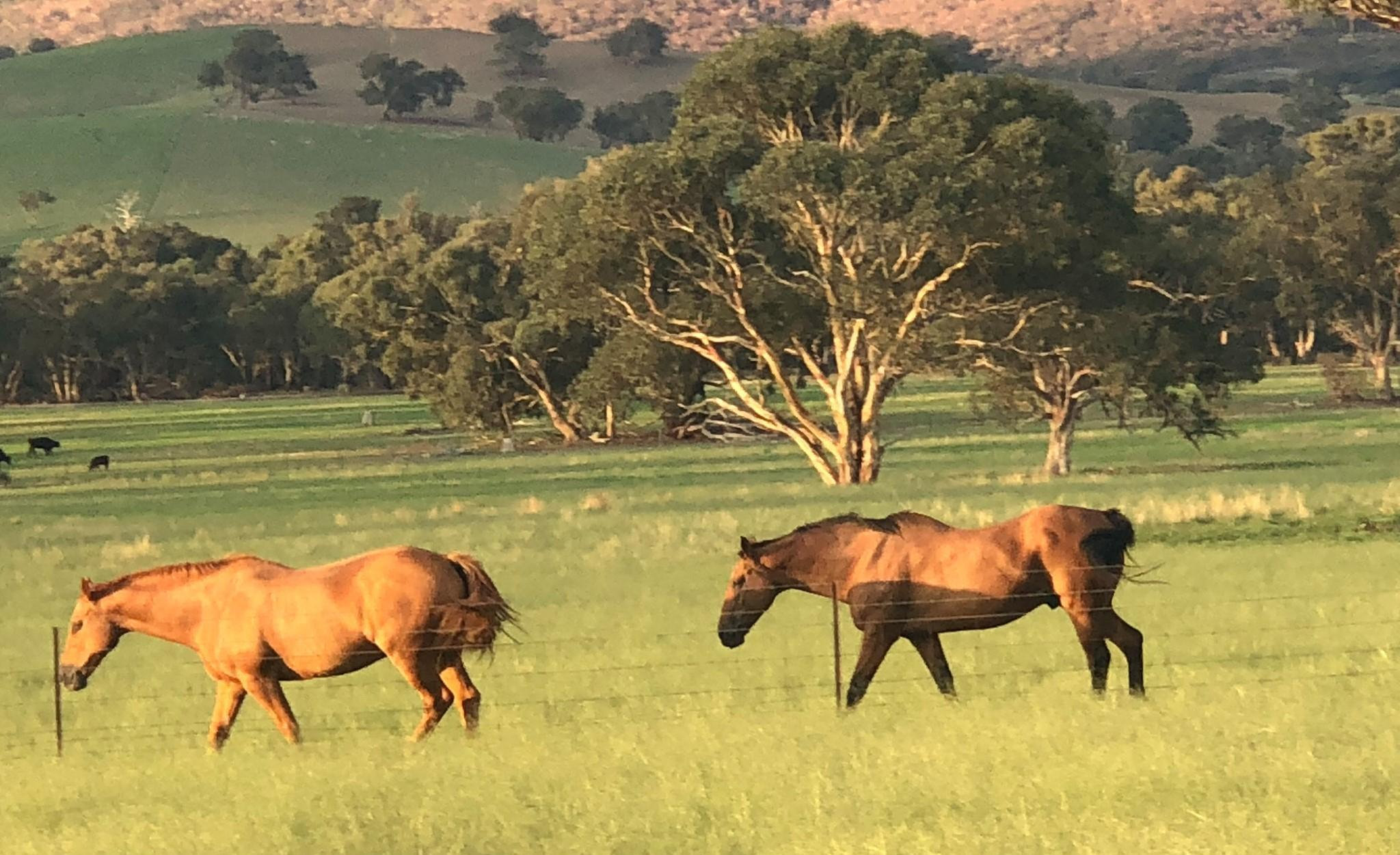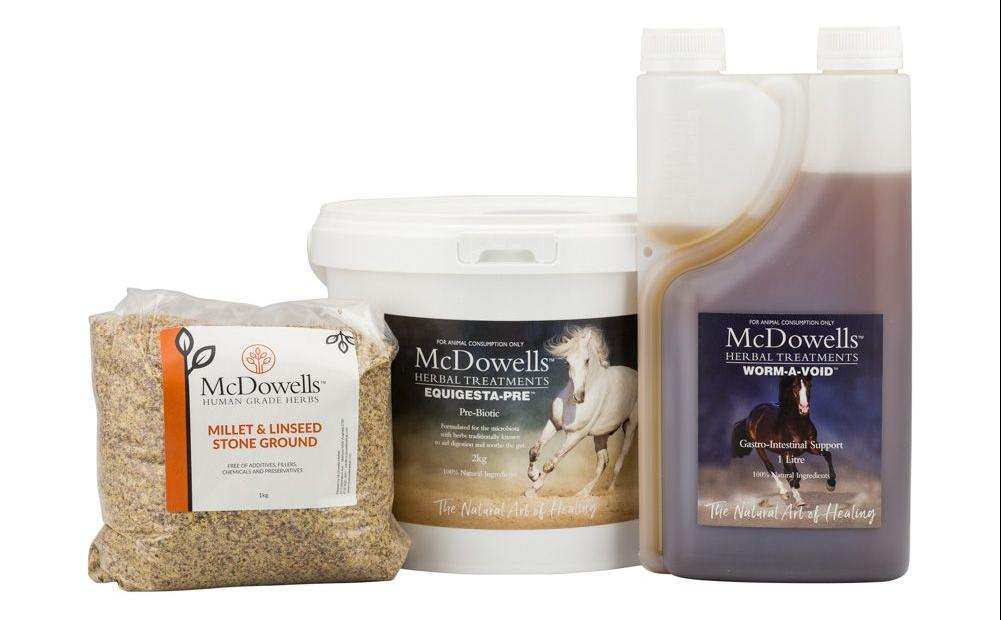Every time one visits a stockfeed store or saddlery shop, you are inundated with advertising slogans for the best wormer rotation program, along with life cycle charts detailing every stage of the nematode. Images of bots assault your eyes, and chemical smells mingling with chaff and hay have become the norm.

It is a very satisfying feeling knowing that the worming paste has killed the offending larvae of the bot fly. And you know it works because the wormer is a toxic chemical. The fact that chemical drench resistance is a problem is not a subject of deep thought - the assumption is that while ever a chemical company is in operation, a drench to deal with the next resistance is only a season away.
'Animal Health' is now synonymous with agricultural chemical companies - something that was unheard of in the days when my grandfather had 30 head of Clydsdales to pull the combine at harvest. I could guarantee he did not drench his horses every three months as recommended, irrespective of management or requirement!
The problem with chemical drenches
Besides the obvious (drench resistance that can occur with the overuse of anthelmintic and other well-known systemic chemical parasite controls), is that of the damage to the lining of the Gastrointestinal System, and organ (liver and kidney) damage.
Any toxic load on an animals system will compromise the liver and kidney, as these chemicals are cleaned out of the system via the normal metabolic process. Any toxicity not cleared naturally will be stored in fat, and is released again when the system can finish its processing. If this is not cleared, the system becomes compromised resulting in lowered immunity, never really catching up its metabolic "housekeeping".
The Alternative
Giving bitter herbs is not popular in our modern age when we all seek treatments which are sweet flavoured and nice to take. There is a place however for astringent and bitter tonics in digestive system health.
There is no herbal treatment which will kill all worms and register a zero count in a blood test. Worms evolved along with all animals' digestive ecology and if the horse's general health is properly supported, any infestation will be controlled so that it does the animal no harm.
The herb Wormwood (and many others) was used for hundreds of years to assist in managing worm loads in people and animals alike. These herbal wormers are safe for the host, have no side effects and discourage worms by making the animals system healthier and discouraging worm reproduction.
Chemical wormers are maybe more powerful than what you would want and work only because they kill worms quicker than killing the host. However, if the situation calls for a chemical wormer, I am not against judicious intervention.
Herbs can be used to help detox from the negative effects of chemical drenching, whilst assisting your animal to manage the worm loads is a much more realistic target and can be done using a number of different approaches.
I make up a mixture of traditional anti-parasitic herbs that work by toning up the wall of the gut while at the same time helping to expel worms. Regular use leaves the gut healthier than before and more able to manage a natural and harmless worm load. These herbs are steeped in raw apple cider vinegar and specific dosages are given in a set program over weeks.
Wormwood, Chinese Rhubarb, Tansy, Burdock, Flax Seed, Cloves and Garlic are a few of the herbs that I like to use for their anti parasitic and vermicide effects.
Aloes, Elecampane and slippery elm powder is used to heal damage to the lining of the gut, making the environment and GIT ecology much healthier.
There is no resistance build up, nor chemical residue to deal with.
Managing the Environment
Another factor often overlooked is the season. If you are lucky to live in a country like Australia with its harsh climactic extremes, you have nature again working for you. Worm cycles are interrupted by dry periods and frost, the likelyhood of herd infestation is lowered.
Naturally, if you're not living in these kinds of conditions, you must still keep manure under control especially if you have a high animal population on small acreage. Making sure that you allow good periods of rest in paddock and follow on grazing methods (with sheep or cattle) is advised.
Using biodynamic soil sprays, basalt and dolomite to condition the soil is also part of managing the whole system in balance. Encouraging natural forages of lava and eggs is part of well-nourished balanced eco system, and will keep parasite levels in check.


